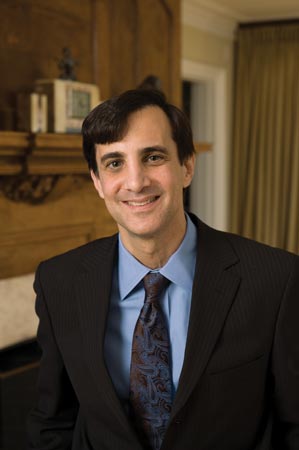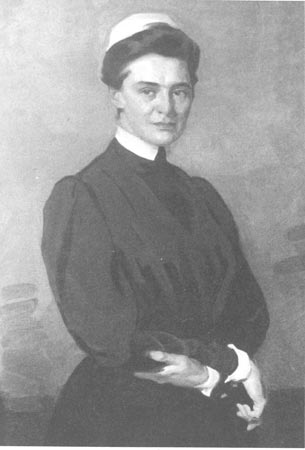By David Seridan
Jean Toth ’59, RN, DNSc, first traveled to Esiama, Ghana, West Africa in 1994. She was a member of the Word Alive Missions Association, a group of Christian missionaries who promote the establishment of schools, hospitals, and orphanages.
During her tour of a local hospital, nothing could have prepared her for what she saw: The hospital had no electricity, no running water, no microscopes, no equipment, and yet physicians were performing surgeries. Toth remembers being bewildered and wondering, “How do you diagnose and treat what you can’t see?”

“I was overwhelmed with feeling as I saw, firsthand, the poor conditions and practices detrimental to health and survival in the rural African Village,” says Toth, who has served on the nursing faculty at Catholic University for more than 20 years. “I felt like God was leading me to these people. He wanted me to make a difference.”
She committed herself right then to equip that hospital with basic medical equipment. The first donation she secured was a light microscope, a basic medical tool using natural sun light to enlarge images on slides. From this humble beginning grew a fully equipped hospital.
Toth’s next mission was to work with the Esiama Ministry of Health to establish a school of nursing in the village, on land that had been given to the Word Alive Missions Association in the 1990s by the Chief of Esiama. “Donations are great, but the Esiaman people needed more than a hand-out,” says Toth. “An education would help these people take ownership.” Toth approached the International Nurses Association, which donated nursing and health-related text books for the school’s classrooms and for a library.
The Word Alive School of Nursing was inaugurated in 2001 and today has a thriving two-year clinical program and an enrollment of 106 students. About 25 percent of the students are male. Construction of classrooms and a dormitory to house 200 students is currently under way.
“These people had nothing. Thanks to God’s grace they now have a school, a library, a sufficiently equipped hospital, and a future,” says Toth, who makes frequent visits back to the village to teach at the school and maintains constant contact with the school’s principal, Sabina Bilson.
At the school’s inauguration ceremony, Toth recalls that it was not the TV crew or ministry of health officials who captured her attention, but two young boys who performed on stage.
“As they stepped past the edge of the rectangular stage area in front of the main platform, soft music began to play,” Toth remembers. “The boys slowly moved to the center of the stage. Both had on short blue pants and were barefooted. One leaned on a crutch, covered with cloth. He limped as he walked, while the music played. The lyrics were:
We are hungry, we are sick, we need help,
our parents have left us; they have died.
We are alone. Won’t someone come to help us?
“The second boy was also moving slowly. He had a bandage wrapped around his head that was stained red to represent blood. His leg was bandaged, too, and he had a large red-stained bandage surrounding his waist. Both lay down on a reed mat under a small potted palm tree. As the music played for the second time, I rose from my chair, and walked to where the boys were lying [so that I could] take their photograph. I had on the white lab coat of a nurse. The words to the music repeated: We are hungry, we are sick…we are alone, won’t someone come to help us? That was when I began to weep; God had decided to send nurses.”
 Hill's Side
Hill's Side Improving Healthcare, Together
Improving Healthcare, Together Clear the Air for Kids with Asthma
Clear the Air for Kids with Asthma Bench to Bedside
Bench to Bedside Letters to the Editor
Letters to the Editor







